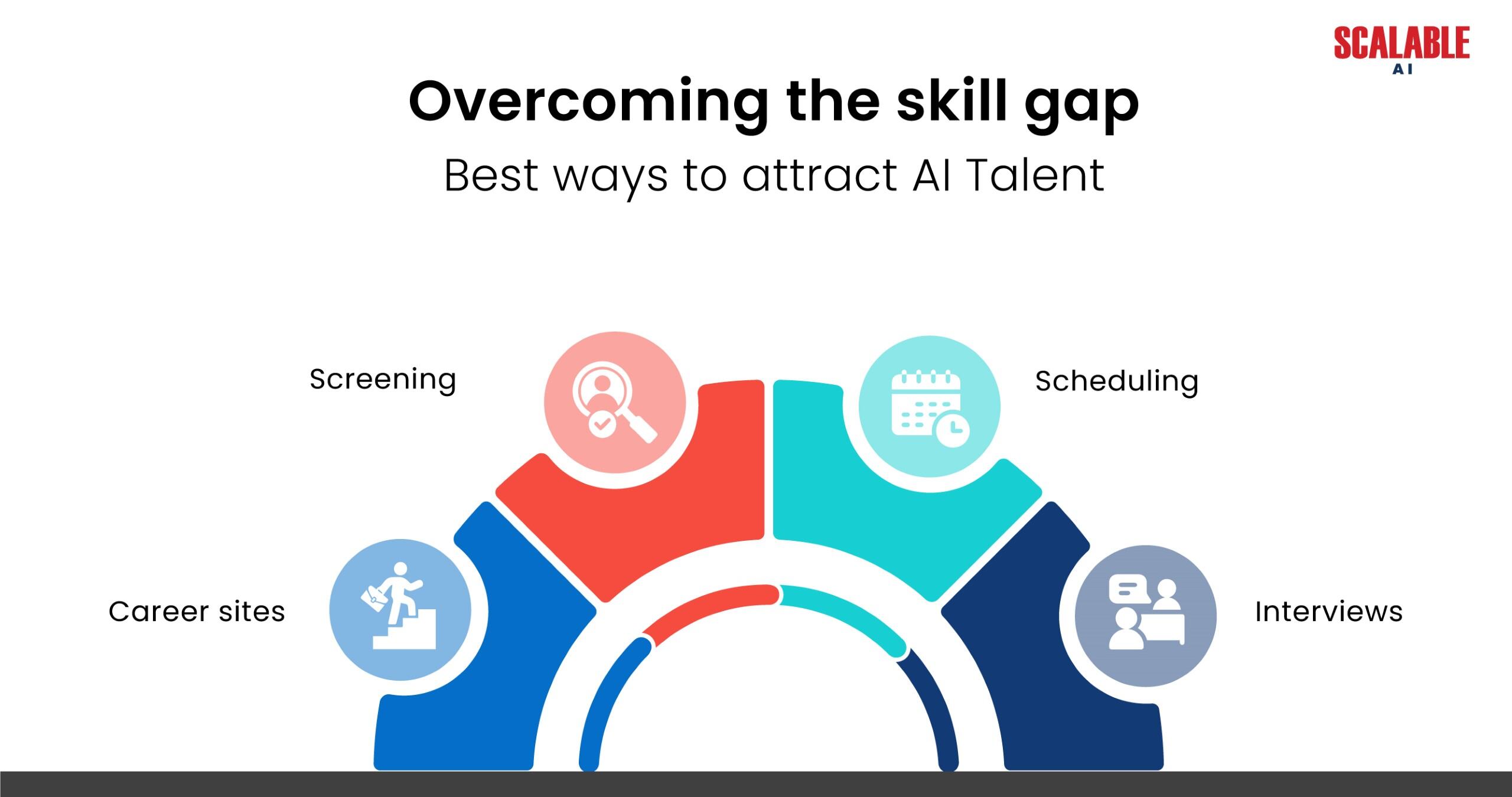Executive Summary :
Artificial Intelligence, or AI, makes it possible for computers and other devices to simulate human intelligence and problem-solving skills. It’s a wide field with a range of knowledge and abilities. Integration of artificial intelligence (AI) has become essential in the rapidly evolving digital business landscape of today. The AI industry is expected to develop at a 15.83% annual pace (CAGR 2024–2030) to reach a volume of US$738.80 billion by 2030. To meet strategic goals and capitalize on new technologies, a highly skilled AI workforce must be assembled. Businesses may improve and become more competitive by utilizing AI to its fullest. Putting together a knowledgeable AI team is crucial for businesses to take this step forward.
AI Team Characteristics
An AI team typically requires a blend of technical expertise, soft skills, and data. Members must possess strong programming, statistical, analytical, and machine-learning abilities. They also call for commercial acumen, the ability to successfully communicate results and recommendations, and analytical and problem-solving skills.
Desired Skills Preferred in a Candidate
Building an AI team is challenging and depending on the scope and intricacy of your project, many different jobs may need to be filled. To create a solid and well-balanced team, it is very important to focus on the candidates’ overall abilities. These attributes could exist independently of the necessary technological expertise and academic credentials. Superior communication skills, a flexible nature, the ability to think out-of-the-box, a bit of social and emotional intelligence, and a sound knowledge of technology are required to succeed in the world of AI.

Talent Intelligence Platforms for hiring the best AI talents
We’re talking about talent intelligence powered by artificial intelligence (AI), which is state-of-the-art technology that can dramatically increase recruiting outcomes by assisting recruiters in increasing both their efficiency and the candidate experience. Before continuing, let’s examine the applicant’s experience in more detail.
Career Sites:
Any career website that uses AI technology may match candidates with open opportunities based on both the candidate’s profile and the needs of the company. This finds suitable talent and expedites the talent-sourcing process. This can be rather helpful in the competitive and quick-paced business world of today.
Screening:
The days of screening being a drawn-out procedure that took days or, in extreme circumstances, even months are long gone. Strong matches are now rated first thanks to artificial intelligence, which has altered the recruiting game and sped up the process for both recruiters and prospects.
Scheduling:
It is now simple to save a significant amount of money and time. One of the most crucial aspects of the hiring process is scheduling. Interview scheduling can be done automatically by AI. Faster decision-making and improved hiring experiences are the outcomes of expedited scheduling.
Interviews:
AI is able to validate the skills stated on resumes. It may also confirm a talent the applicant already possesses. In a similar vein, AI might propose whether or not a specific skill set exists. This is a more efficient, modern, scientific, and rigorous approach to choosing the greatest talent in less time.
Retention of Talent is crucial for team stability
Investing in your employees’ professional and career development reduces staff churn and increases employee loyalty. Make sure it aligns with their aspirational goals by offering mentorship programs, outlining career alternatives in detail, and aggressively seeking feedback. These 5 factors can play an important role in retaining quality resources.
Adaptibility:
AI is a constantly developing technology. Teams need to continuously learn new technologies and abilities in order to remain competitive as AI develops swiftly. Regularly assess your team’s accomplishments and areas for improvement. Then, proactively address any skill gaps by launching projects for training and development.
Competitive Salaries:
Respect the team’s experience and say that you will do everything in your power to keep them financially secure. Earned compensation affects an employee’s psychological state and helps to maintain team stability.
Opportunities for internal mobility:
It should be made easier for team members to look into various roles and career paths inside the company. It is necessary to create an inclusive culture where individuals can feel valued and respected. This raises worker satisfaction levels all around.
Participating in open-source projects:
Keeping team members informed about developments and involved in open-source communities is crucial to maintaining employee satisfaction and productivity. It enhances the company’s quality knowledge base in addition to increasing employee happiness.
AI professionals are bound to play a big role
In today’s world of technology where AI is making its presence felt in every aspect of the business arena, it is important to have a finely balanced team of AI professionals. A well-defined team of professionals will help you to have competitive mileage and walk that extra mile. We have discussed certain points in this blog that may help to clear the confusion and help you march ahead, not only in assembling a fine team but also in retaining talent.
Read Whitepaper AI Talent Acquisition: Your Hiring Blueprint
